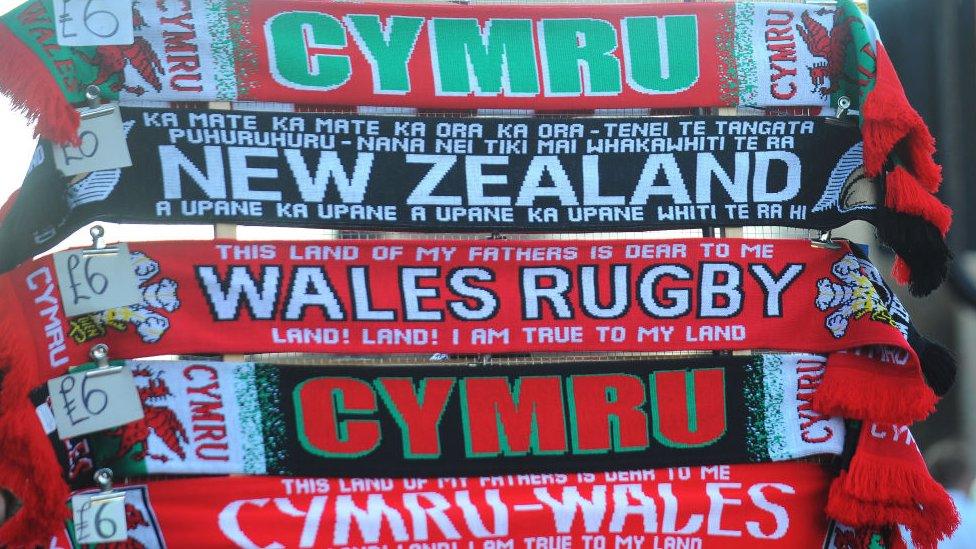Covid: Wales' rugby mask rules not effective, expert says
- Published
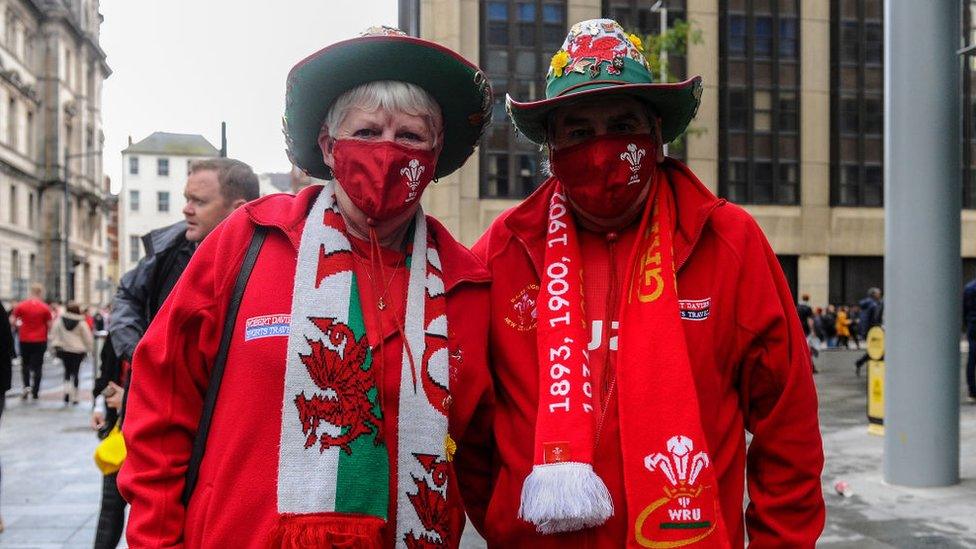
Masks are required on stadium concourses, but not in the seats or outside the ground
Rules asking fans to wear face masks to Wales' autumn rugby internationals are "not effective", an academic has said.
Simon Williams from Swansea University said rules asking fans to wear masks in the stadium concourses but not in seats could be confusing.
Wearing masks on concourses is part of a number of Covid-related measures in place for Wales' four autumn matches.
On Tuesday, Principality Stadium manager Mark Williams urged fans to follow the rules on mask wearing.
He said: "As we look to next weekend and the game against South Africa, I'd like to remind all supporters to wear their masks when inside the stadium.
"Masks are one of the important ways to stopping the spread of Covid-19, so we urge all supporters to respect their fellow fans and keep their masks on when on the concourses."
Under Welsh law, masks are mandatory on public transport, while Covid passes are needed for large events and nightclubs.
The Principality Stadium has asked people wear masks when moving around the ground, but these can then be removed while seated.
On Tuesday, Health Minister Eluned Morgan expressed concern about people mixing in Cardiff on matchday, citing high Covid case rates.
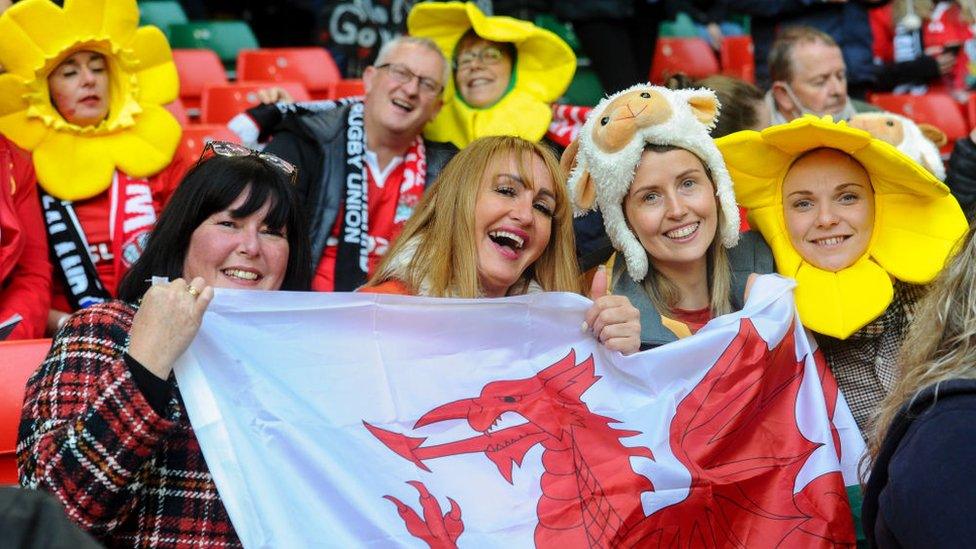
Masks can be removed while fans are seated at the Principality Stadium for Wales' Autumn Internationals
Dr Williams, a senior lecturer in people and organisation, said people could be struggling to follow rules such as these if they did not understand the rationale behind them.
He said: "There's two problems. One is people aren't clear as to why, when you're moving through a concourse and seeing people for a few seconds, you have to wear a mask, whereas when you're sitting down next to people for an hour-and-a-half you don't. So people might think 'what's the point?'
"The second is, the act of putting it [a mask] on and taking it off again, people might forget. It's much easier to wear one constantly then remember to put it on and take if off again."
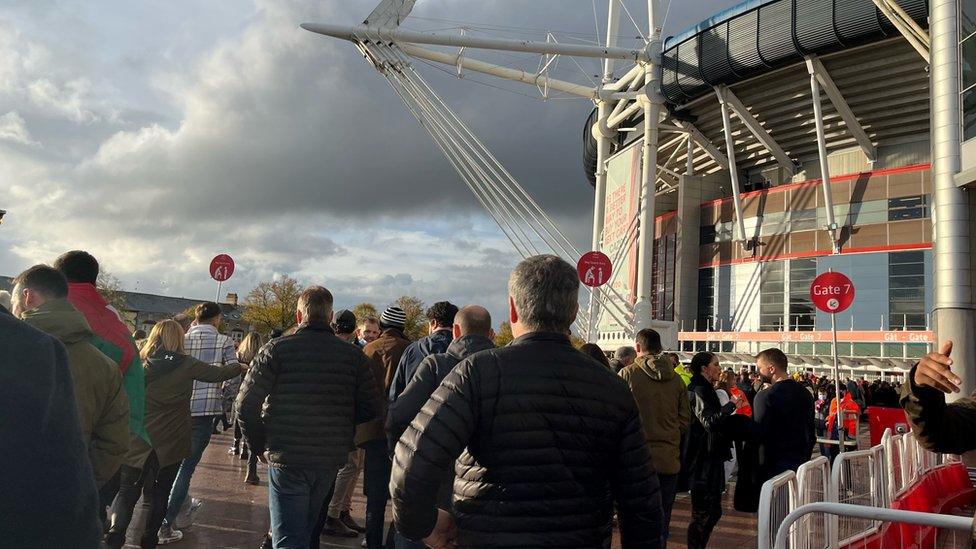
The Principality Stadium has put several Covid measures in place for the autumn internationals, including staggered arrival times and electronic tickets
Dr Williams said people may choose not to wear a mask at the match if they had travelled there on a busy train.
He said: "One thing I was concerned about was secondary mixing - trains, car sharing, bars and restaurants. It's not just the events themselves it's how people interact around the events."
There were reports on Saturday of packed trains with limited mask wearing.
Allow X content?
This article contains content provided by X. We ask for your permission before anything is loaded, as they may be using cookies and other technologies. You may want to read X’s cookie policy, external and privacy policy, external before accepting. To view this content choose ‘accept and continue’.

Leila Al-Baldawi tweeted a video of a busy train carriage as she travelled from Carmarthen to London, with the service carrying some match-goers from west Wales to Cardiff.
She said the train she travelled on was "rammed" and "crazy", adding: "They'd known about this match for a long time and, regardless of Covid-19, people are paying a lot of money these days for tickets on trains.
"They've known that tens of thousands of people would be descending on Cardiff that day, I just don't understand why there weren't more carriages, there were two carriages on that scheduled trip."
Allow X content?
This article contains content provided by X. We ask for your permission before anything is loaded, as they may be using cookies and other technologies. You may want to read X’s cookie policy, external and privacy policy, external before accepting. To view this content choose ‘accept and continue’.

Transport for Wales (TfW) warned ahead of last weekend's match against New Zealand that social distancing would not be possible, and has issued the same advice ahead of Saturday's game against South Africa, and that all available carriages and some additional capacity would be in service.
It also said it gave 3,000 masks to passengers on Saturday.
It said: "Travellers must wear face coverings on public transport in Wales and we continue to work closely with the British Transport Police (BTP).
"TfW staff and BTP officers will be engaging with passengers at stations and anyone refusing to wear a face covering without an exemption could be refused travel or removed from services."
Dr Williams added that although research showed the majority of people were supportive of mask-wearing laws in Wales, there was anecdotal evidence of this dropping, particularly on busy services where policing it becomes impossible.
He said: "When there was this growing sense of measures not being enforced, those who were on the fence or not in agreement might say 'it's not being enforced, why bother'?"
What are face mask rules in Wales?
Face masks are required by law in Wales on public transport, including taxis, which is not the case in England.
They are also required in indoor areas, such as shops, places of worships, cinemas, gyms and leisure centres.
But you do not have to wear them where food and drink is served, such as in pubs, cafes and restaurants.

FIGHT FOR YOUR RIGHTS: X-Ray returns and they've got your back
FORENSIC COLLISION INVESTIGATORS: Step inside the cordon with The Crash Detectives

- Published2 November 2021
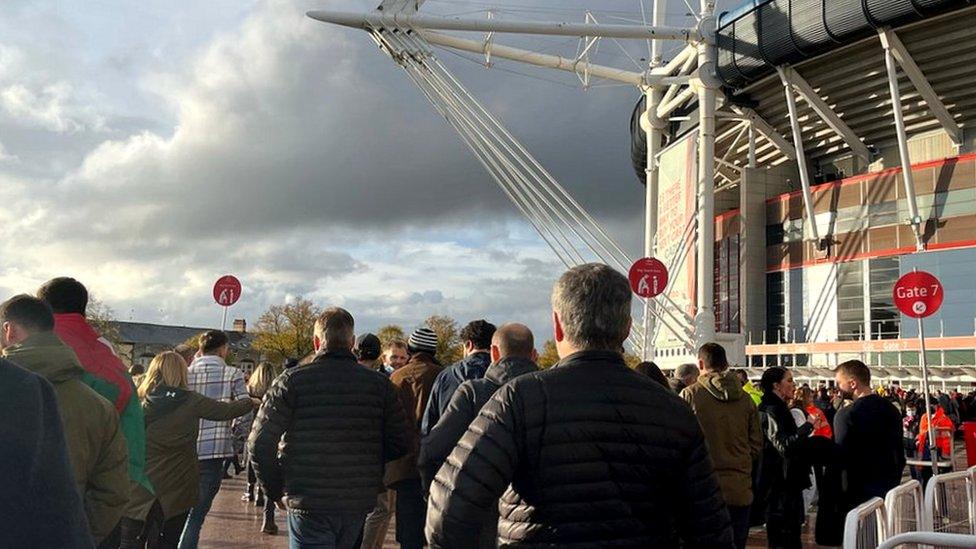
- Published30 October 2021
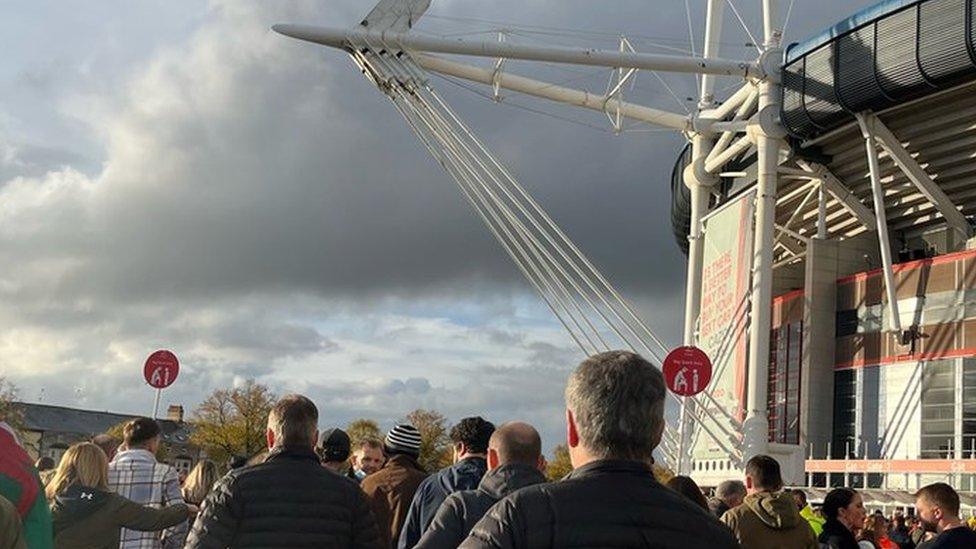
- Published28 October 2021
